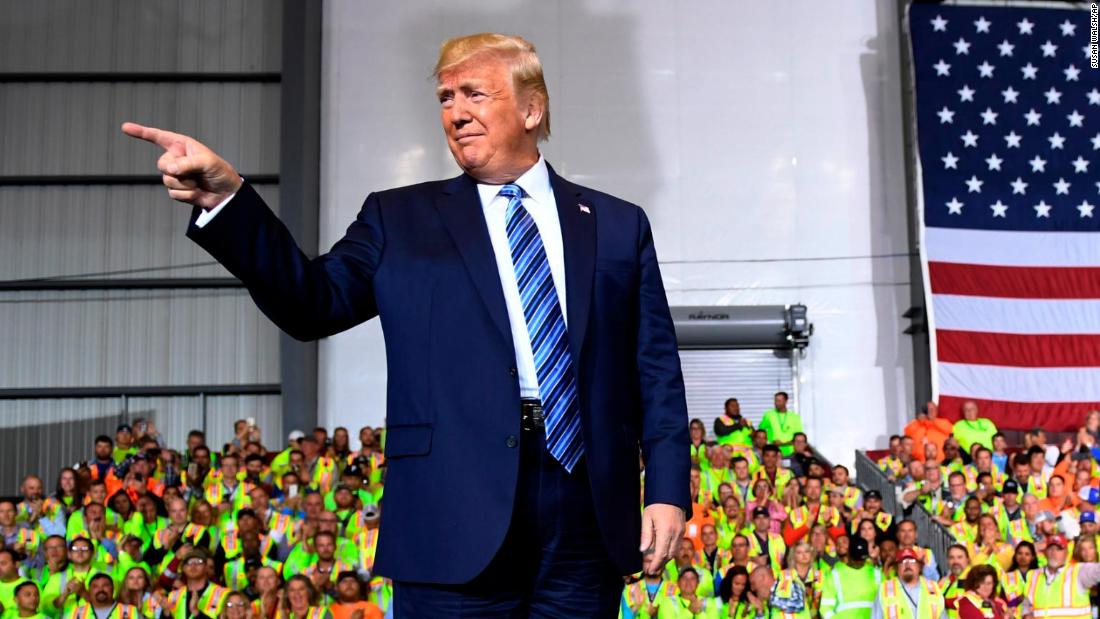“It was the Trump administration that made it possible. No one else. Without us, you would never have been able to do this,” he said.
Trump was taking far too much credit.
Shell
announced the likely site of the plant in 2012. The company
revealed in 2015 that it would begin an $80 million environmental remediation project on the site. It issued a June 7, 2016, press release announcing it would proceed with the plant, saying it had made a “final investment decision to build a major petrochemical complex, comprising an ethylene cracker with polyethylene derivatives unit, near Pittsburgh.”
In 2016, a Shell executive
said that the key factors in its decision to build in Pennsylvania were the proximity to low-cost ethane, proximity to customers, and tax
incentives from the state government. The story of the plant is a reminder that no matter who is president, they’re often a peripheral player in corporate decisions.
What Trump said
The $6 billion plant, which has been
under construction since
2017, will “crack” ethane, a natural gas liquid found in certain natural gas deposits, and turn it into plastic pellets that can be used in various plastic products.
Trump claimed that the plant would not have been allowed to use natural gas from Pennsylvania hydraulic fracturing, known as fracking, if he were not elected, alleging that Obama’s administration “tried to shut down” fracking in the state. He said that, if Hillary Clinton had won, “I guess you would have stopped long ago. You would have stopped construction before it started too much.”
Trump then referenced a conversation he said he had with Shell’s US president, Gretchen Watkins.
“I was talking to Gretchen: they would have never gotten the approvals to do what’s needed to fuel these plants. That wouldn’t have been good, so probably they wouldn’t have started. But if they would have started, it would have been stopped,” he said.
What actually happened
The boom in natural gas production from Pennsylvania’s Marcellus Shale, which will be
used by the plant,
occurred under Obama. (There is a debate about how much credit or blame Obama deserves for it, but he did not try to end it.) While we can’t fact-check what might have happened had Clinton become president, there is no specific basis for Trump’s suggestion that Clinton would have stopped the project in its tracks.
It is true that Trump’s administration did allow the project to proceed.
In September, the Federal Energy Regulatory Commission, which was
chaired by a Trump appointee and made up of two Republican appointees and two Democratic appointees,
approved technical details of the Falcon pipeline the plant will use. (The Pennsylvania Department of Environmental Protection, a state entity, issued its own
approvals in December.)
Watkins said in her speech at the Trump event on Tuesday: “We couldn’t do this without the President’s focus, also, on energy infrastructure. That focus has enabled us to break ground on the Falcon pipeline.”
Trump’s administration also took trade action to help the plant project — but only after he took trade action that hindered the project. In August, Trump
eased his steel quota policy after Republican Pennsylvania Sen. Pat Toomey and others told him that his protectionist measures were making life difficult for businesses,
including the cracker plant. Brazilian steel for the plant had been
held up by US Customs and Border Protection because Trump’s quota for Brazil had been filled.
Not the first time
Trump has repeatedly been inaccurate about Obama’s record. Tuesday’s speech was not the first time he has taken sole credit for an energy-industry facility a company decided to build under Obama.
After Trump spoke at Sempra Energy’s Louisiana Cameron LNG export terminal in May, he began
claiming that he was the one who gave the facility the approvals it needed. In fact, the approvals were granted in 2014.
Trump repeated the claim, though less explicitly than usual, in the Tuesday speech in Pennsylvania. He also took
credit for the Veterans Choice program Obama signed into law in 2014.

